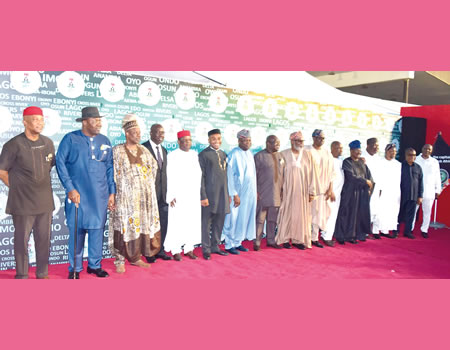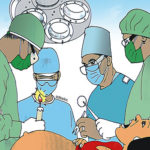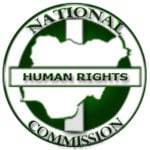Monday, the 23rd October, 2017, Lagos, the former capital city of Nigeria played host to governors from all the 17 states making the southern part of the country except one, that is Imo State, whose governor, Ewelle Rochas Okorocha, who was conspicuously absent and neither sent a representative nor an apology.
The governors are: the host, Mr. Akinwunmi Ambode; Nyesom Wike (River), Rauf Aregbesola (Osun), David Umahi (Ebonyi), Godwin Obaseki (Edo), Oluwarotimi Akeredolu (Ondo), Okezie Ikpeazu (Abia), Udom Emmanuel (Akwa Ibom), Ifeanyi Ogwayin (Enugu), Abiola Ajimobi (Oyo), Seriake Dickson (Bayelsa), Ayo Fayose (Ekiti) and Ibikunle Amosun (Ogun).
Three deputy governors, came to represent their governors. They include Dr Ikem Okeke (Anambra), Ivara Etsu (C/Rivers) and Kingsley Otuaro (Delta).
The governors, who had scheduled meeting about two days earlier through a statement made available by the Lagos State Secretary to the Government (SSG), Mr Tunji Bello, met at the Lagos House, in Alausa, Ikeja, behind closed-door for more than three hours, later came out with a 7-point communique to reiterate their commitment in the unity and indivisibility of Nigeria, while affirming their belief in true federalism and devolution of powers in the country.
The host governor, Mr Ambode, who emerged the chairman of the summit, read the communique to newsmen. Also in attendance at the venue to hear out the governors on the outcome of their crucial parley to move the country forward were the Lagos State Deputy Governor, Dr Idiat Oluranti Adebule; members of the state executives and other government officials, drawn from states accross the southern part of the country.
Governor Ambode, who described the parley as successful, also said the Southern governors restated their commitment to collaborate with one another for the growth and development of their state economy, and equally emphasised priority on security of lives and properties of their citizens.
According to him, the governors also emphasised the need to ensure effective linkage on good infrastructure within the space of Southern Nigeria.
The communique reads: “The Southern governors at their meeting in Lagos on the 23rd October restated their commitment to united and indivisible Nigeria.
“The summit also reiterated its belief in true federalism and devolution of powers.
“It restated its commitment to collaboration with one another for the growth and development of their economy.
“The summit emphasised priority on security of lives and properties of its citizens.
“The summit also emphasised the need for effective linkage on good infrastructure with the space of Southern Nigeria.
“The summit unanimously appointed Lagos State Governor, Mr. Akinwunmi Ambode as the chairman and Governor Seriake Dickson of Bayelsa State and Governor David Umahi of Ebonyi State as co-chairmen. “The next meeting is scheduled to hold in Port-Harcourt, River State.”
Looking at the contents of the communique, it did not make mention of how the governors want to achieve true federalism and devolution of powers in the country where agitation for such, particularly the restructuring of the country is louder than it has ever been.
For instance, the Southern Governors’ Summit merely restated its belief in true federalism and devolution of powers and fell short of calling on the Federal Government, the president, Muhammadu Buhari, the National Assembly to take the necessary step in getting those desires of majority of Southern Nigeria effected.
Besides, they also failed to urge the other part of the country, that is Northern Nigeria, to see reasons why true federalism and devolution of powers is the best way out for the country and, therefore, the need to join hands in seeing that Nigeria is restructured along that line.
It would be recalled that foremost socio-political groups, including the Afenifere, Southern Leadership Forum (SLF), among others, have not failed to impress on their stand that Nigeria is more than ripe for restructuring and that the best way of current dilemma that the country has found itself is to go back to true federalism that it operated in the early 60s when the four regions in the country, namely Western, Eastern, Mid-Western and Northern regions were controlling larger chunk of their resources and were able to record phenomenal growth and development, unlike now that states have turned to beggars who have to go to Abuja, the Federal Capital, on monthly basis to receive a dole that can hardly sustain them as nearly all of them now find it very difficult to pay their workers’ salaries.
It does appear that what the governors have resolved to do from the tone of the 7-point communique issued and read at the end of their parley that what they have agreed on mainly was to ensure cooperation and collaboration among the 17 states in Southern Nigeria for growth and development, while focusing on putting into practice to the best of their ability the principles of true Federalism and devolution of powers, within their enclave.
Perhaps, in the view of political observers, the open address of the host governor, Mr Ambode, may have spoken the true minds of all his colleagues at Governor Rochas Okorocha of Imo State.
Governor Ambode, while welcoming his colleagues to the meeting, reflected on the clamour for true federalism and devolution of powers, contending that states of the Federation would benefit from the envisaged restructuring.
According to him, the goals of true federalism, which included the strengthening of autonomy and the enhancement of fiscal viability, will enable the states to develop at their own pace and based on their peculiarities, noting that the Forum had achieved an increased awareness on the sustenance of the national question germane to peaceful co-existence in the country.
While admitting that a lot still needed to be done and achieved, Governor Ambode stressed that true Federalism required urgent, meticulous and proactive attention by the Governors’ platform.
The governor decried what he described as the non-periodic review of the revenue formula as provided by the constitution to reflect evolving realities, contending that the review was crucial to enhance the viability of states and local governments and their capacity to fulfil their developmental roles in the polity.
According to him, “States are disparaged for always carrying begging bowls to Abuja in quest of hand-outs from the Federal Government. This is a function of our present national constitution that burdens the Federal Government with activities and responsibilities that rightly fall within the province of states.
“The productivity and revenue-generating capacities of most states are thus stifled, thus turning them into no better than street beggar states incapable of even meeting routine obligations of paying workers’ salaries and pensions without Federal support.”
Going down memory lane, Governor Ambode recalled that Lagos State had fought and won several legal battles since 1999, which he said had systematically strengthened her autonomy and enhanced her fiscal viability.
He listed those areas to include: Management of its Environment, the Control of Urban and Physical Planning, the Regulation of Overhead Masts, the Registration and Regulation of Hotels and Restaurants, and the Control of Inland Waterways.
These victories, Governor Ambode said belonged, not only to Lagos, but also to other states, expressing the belief that, if Lagos could achieve so much by fighting alone, the Southern Governors’ Forum would accomplish more through collective planning and strategy.
Governor Ambode pointed out that the Southern Governors’ Forum had been reactivated at the time the National Assembly was harmonising its differences over the 1999 Constitution amendment that would soon be transmitted to the Houses of Assembly for approval.
“It is important for this Forum to comprehensively look at the proposed amendments with a view to working with our respective Houses of Assembly to ensure a coordinated response on our part that will strengthen the practice of democracy, Federalism, constitutionalism and the Rule of Law,” he said, just as he clarified that, while pushing for greater devolution of powers, responsibilities and resources from the centre to the states, the goal of the Forum was neither to achieve a weak centre and strong states and vice versa.
Speaking further, Governor Ambode paid tribute to former Lagos State Governor Bola Tinubu, for his initiave, recalling that he hosted the first meeting of the Forum in Akodo Beach Resort, Ibeju-Lekki, whe he was at the helm of affairs.
He said even though the initiative was received with mixed feelings at the time, Tinubu was vindicated later because of its achievements as the Forum became a vocal voice on maters of critical importance, not only to the Southern Nigeria, but to the country as a whole.
The governor lauded the Forum for advocating for a special allocation to oil-producing states in the Federation Account, adding that its agitation led to the current 13 per cent revenue derivation and allocation from the Federation Account.
The one-day Summit ended on a pleasant note, no doubt as it recorded a full attendance of the ruling All Progressives Congress (APC) governors and their counterparts in the opposition Peoples Democratic Party (PDP) in the Southern part of the country. Like Governor Akinwunmi Ambode pointed out that a lot still needed to be done and achieved on the part of Forum, it should be expected that the next Summit slated to hold in Port-Harcourt, the River State caital would be an opportunity to drive home much better the quest for total restructuring of the country, a clamour that not a few Nigerians believe would serve the country and the citizenry much, much better.






